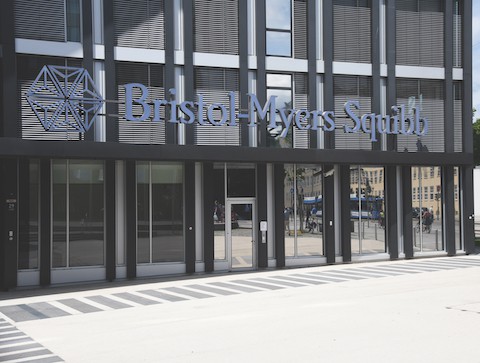
Bristol-Myers Squibb and AbbVie’s hopes of moving its multiple myeloma therapy Empliciti up the treatment pathway into first-line use have hit a major snag.
The 750-patrient ELOQUENT-1 trial showed that adding Empliciti (elotuzumab) to background treatment with BMS/Celgene’s Revlimid (lenalidomide) and dexamethasone didn’t extend the time patients with newly-diagnosed myeloma who were ineligible for bone marrow transplant lived without their disease worsening.
The SLAMF7 inhibitor has been approved for relapsed or refractory myeloma after one to three prior lines of therapy since 2015, bringing in sales of $357m last year, but has been lagging behind rivals in the market such as Johnson & Johnson and Genmab’s CD38 inhibitor Darzalex (daratumumab).
Darzalex was approved around the same time as Empliciti but has grown much more quickly – thanks in part to approval in first-line myeloma in 2018 – and added around $3bn to J&J’s coffers last year.
AbbVie and BMS – which markets Empliciti on its own – have been able to extend the licensed indications for the drug, picking up EU and US approvals for a regimen of Empliciti, Celgene’s Pomalyst/Innovid (pomalidomide) and dexamethasone in relapsed/refractory patients.
The ELOQUENT-1 results all but end any hope that Empliciti will make it into front-line use, relegating the drug and its mechanism of action to also-ran status.
Meanwhile, as Darzalex has gone from strength to strength, other CD38-targeting drugs are coming through the late-stage pipeline to crowd out the already busy myeloma market.
Earlier this month, Sanofi claimed FDA approval for Sarclisa (isatuximab) in relapsed/refractory myeloma, while J&J and Genmab already have a successor to Darzalex in late-stage development – Hexabody-CD38 – that they think could expand the CD38 class into new cancer indications like lymphoma.
“We are disappointed that the ELOQUENT-1 trial did not meet its primary endpoint in these previously untreated, transplant ineligible patients,” said BMS’ Noah Berkowitz, head of clinical development for the company’s haematology unit.
That said, “Empliciti, Revlimid and dexamethasone combination remains a standard treatment for patients with relapsed/refractory multiple myeloma, providing the potential for improved survival in this population of patients who are in need of additional treatment options”, he added.
BMS will draw some comfort from the fact that through its acquisition of Celgene it has claimed ownership of Revlimid and Pomalyst, plus other myeloma therapies in development, making Empliciti a small part of a much bigger franchise.




